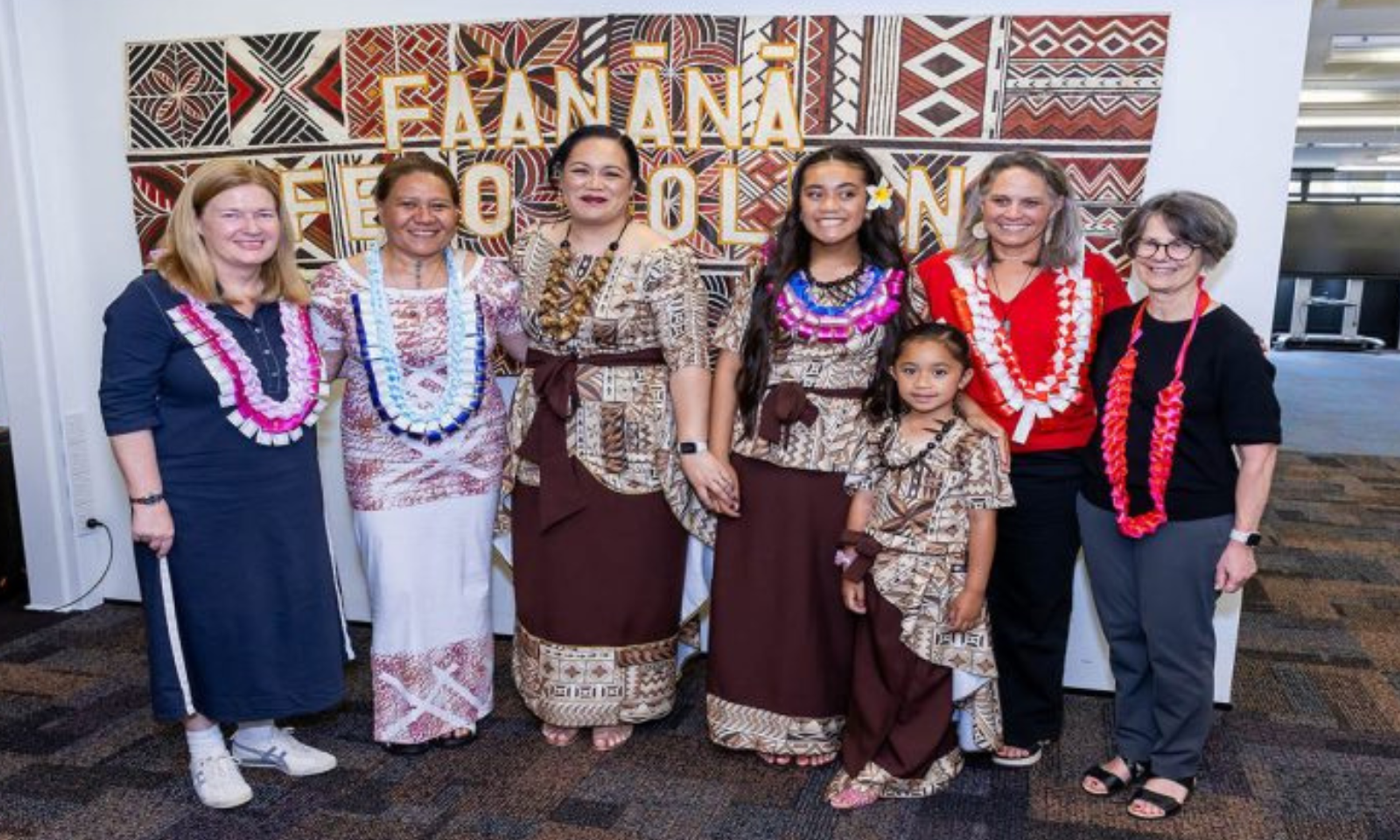

Titi Motusaga, left, and Tapu Opetaia.
Photo/Facebook
Martin (Tapu) Opetaia: How to balance family, community and boxing
He opens up about his Sāmoan heritage, building a new gym, and how he uses boxing to guide youth away from harmful paths.


Jai Opetaia drops German in brutal KO, keeps titles and calls for unification fights


Law expert: US boat strike controversy a lesson for the Pacific


Jai Opetaia drops German in brutal KO, keeps titles and calls for unification fights


Law expert: US boat strike controversy a lesson for the Pacific
In the world of boxing, few narratives resonate as powerfully as that of Martin (Tapu) Opetaia, a dedicated father, coach, and community advocate.
With deep Sāmoan roots and a legacy of boxing excellence, Tapu shares about the challenges and rewards of balancing fatherhood, coaching, and community service while guiding his son Jai to world boxing titles.
Jai is the International Boxing Federation (IBF) and Ring Magazine cruiserweight champion. A Sāmoan-Australian, Jai extended his unbeaten record to 28-0 with a knockout victory against Claudio Squeo in June, marking his sixth successful title defence.
The IBF has since ordered him to face challenger Huseyin Cinkara, with talk of a potential unification bout against Gilberto Ramirez still on the horizon.
Speaking with Tuilagi William Leolahi on Pacific Huddle, Tapu describes the most rewarding part of his journey as watching Jai’s achievements unfold from a young age. He says Jai has accomplished “quite a bit” in his career.
“He made the Australian side and went to his first international tournament, which was the World Juniors. He won it over there in 2011 at 15. Then he accomplished the Olympics at 16… There's so many [accomplishments] to name.”
Tapu admits that balancing the roles of father and coach is not easy. “You have to try and balance it out. Especially us as Sāmoans, we show hard love.
“But at the same time, you've got to pull it back and have a relationship as a friend, as a father, and as a coach. It's very hard to juggle, but we seem to be doing a good job and it's working for us.”
Boxing family history
The Opetaia family’s boxing lineage stretches across generations. Jai’s great-grandfather, Aitulā Opetaia of Tufulele, Upolu, was a fighter in Sāmoa before moving to New Zealand in the 1950s.
His grandfather, Billy (Tapuloa) Opetaia, was a New Zealand middleweight champion in the 1960s, while Tapu himself was a formidable fighter in Australia during the 1980s.
This rich heritage continues with Jai, who was Australia’s youngest boxing athlete to represent the country at the Olympics in 2012.
Tapu reinforces the importance of family, saying it is not just their name at stake, but also that of their parents and ancestors. “He [Jai} says it quite a bit. It's his grandfather's name,” Tapu says.
“[Jai’s] proud and honoured to see it up on the bright lights and carry it on. Our family's been there and supported us from day one since he was a kid.
“[They] helped us go through all the Olympics. It can hit you in the pocket quite a bit. Family's always been there, their love and support. It’ll be there to the end.”
New gym and Sāmoa’s talent
Beyond the championships, Tapu has opened a new boxing gym on the Gold Coast, featuring facilities such as ice baths and saunas, aiming to be “a one-stop shop” for patrons.
Tapu hopes the gym will encourage young people to engage in positive activities instead of resorting to alcohol or drugs. He says the gym has been “awesome” and recalls watching his father run his own gym.
"It's more of a support thing for our community and the youth coming up,” Tapu says. “It’s mental therapy - boxing. The gym always has a place in the community. My dad showed that when he was doing it, taking in kids and helping them with their parents and school.
“It’s hard work, but it's rewarding seeing other people come out on the other side, stronger and better. It's hard work, but it's worth it.”
Tapu and Jai also give back to communities in Sāmoa by donating boxing equipment. Tapu says that whenever Jai returns from Sāmoa, he is in awe of the abundant talent there. Tapu also says watching what the youth in Sāmoa do generates a sense of gratitude.
“Giving little things like gloves, health cards and headgear because they haven't got it. They haven't even got bags. They're punching walls and trees. For us to go there, it just brings you down to the ground and levels you. And you appreciate when you come here and then go there, and you go, ‘wow, look what we got.
“It's special to watch our people over there. To have the opportunity to reach out and try and help build something, letting the kids know that there's opportunities where they can better themselves.”